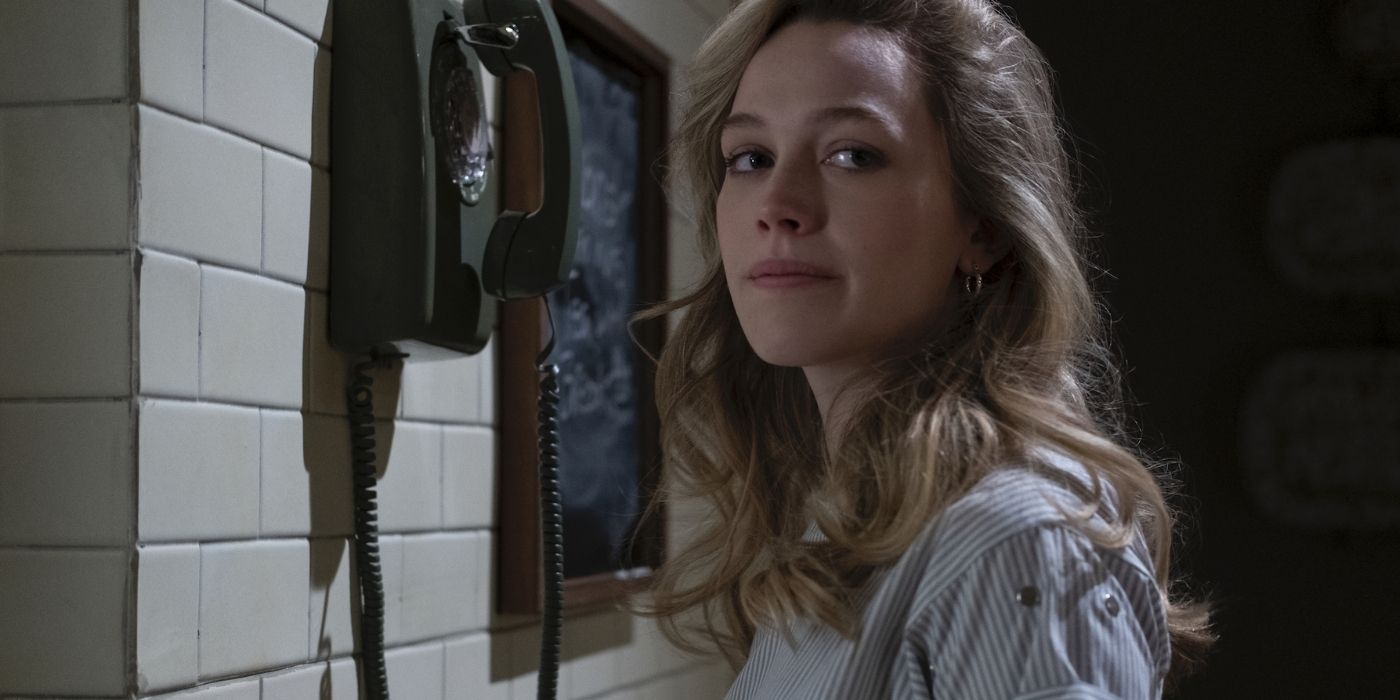In October, The Haunting of Bly Manor was everyone's go-to Halloween show. Following up on The Haunting of Hill House, it had everything to create a perfect spooky formula: a mansion where people died under mysterious circumstances, creepy children, ghosts with grudges, and a diverse cast of trauma-ridden adults. But in the final episode, the fate of a certain pair has fans questioning whether the show used a certain controversial trope. Of course, major spoilers ahead for The Haunting of Bly Manor.
First off, what's a trope? Literary tropes are rhetorical devices meant to represent a common element in a story. With that in mind, fans questioned whether the ending of the show fed into the infamous "Bury Your Gays" trope. Queer representation is becoming more commonplace in popular media, but it's not always good representation. For instance, the "Bury Your Gays" trope is used often, where the only characters under the LGBTQ+ spectrum are killed off while their straight counterparts live on. Famous examples of this are seen in The 100, The Walking Dead, Voltron: Legendary Defender, and the latest culprit, Supernatural. This trope tells viewers that queer people don't get happy endings. But does The Haunting of Bly Manor bury Dani in the same manner?
The first time Dani and Jamie interact, viewers know they're going to have a meaningful relationship in the show. The Haunting of Bly Manor doesn't queerbait either, meaning they don't hint at a character possibly being queer the entire series. Dani and Jamie end up dating and even marrying each other in the last episode. They're the only main couple who end up together and happily so...until the Lady in the Lake threatens to take it all away. Since Dani allowed the Lady in the Lake to enter her in order to save Flora, she expected her to make a return. When Dani comes close to killing Jamie, she decides the best option is to leave the life she built with her, and drowns herself in the lake of Bly Manor. While her fate was ultimately tragic, Dani should not be considered a buried gay by the trope's standards.
The Haunting of Bly Manor is a gothic horror story right from the start. Tragedy continuously strikes those who reside in Bly Manor, specifically to those in romantic relationships. It starts with Viola, her husband, and her sister, then moves on to the Wingraves, Hannah and Owen, Rebecca and Peter, and Dani and Jamie. But unlike the other couples, Dani and Jamie get their happy ending together. They have an entire decade to themselves after leaving Bly Manor and only deal with the Lady in the Lake situation at the very end. They got to live out the beautiful, romantic future the others never achieved. Unlike other shows, this gay character's death is expected because of its genre, and neither of them are killed in the most brutal way possible as if their queerness warrants punishment. Dani knows she will die soon, so she lives her happiest life to the fullest before taking agency in her own death to protect her family.
A queer character dying doesn't mean it's automatically in the "Bury Your Gays" category, because it all depends on how the show sets it up. In the case of The Haunting of Bly Manor, they gave the gay characters a beautiful, dynamic, and tragic relationship that serves to support one of the core themes of the show. Love is not a trap, but rather a means to show that two people are on the same team. As said many times in the show, "It's you. It's me. It's us."

